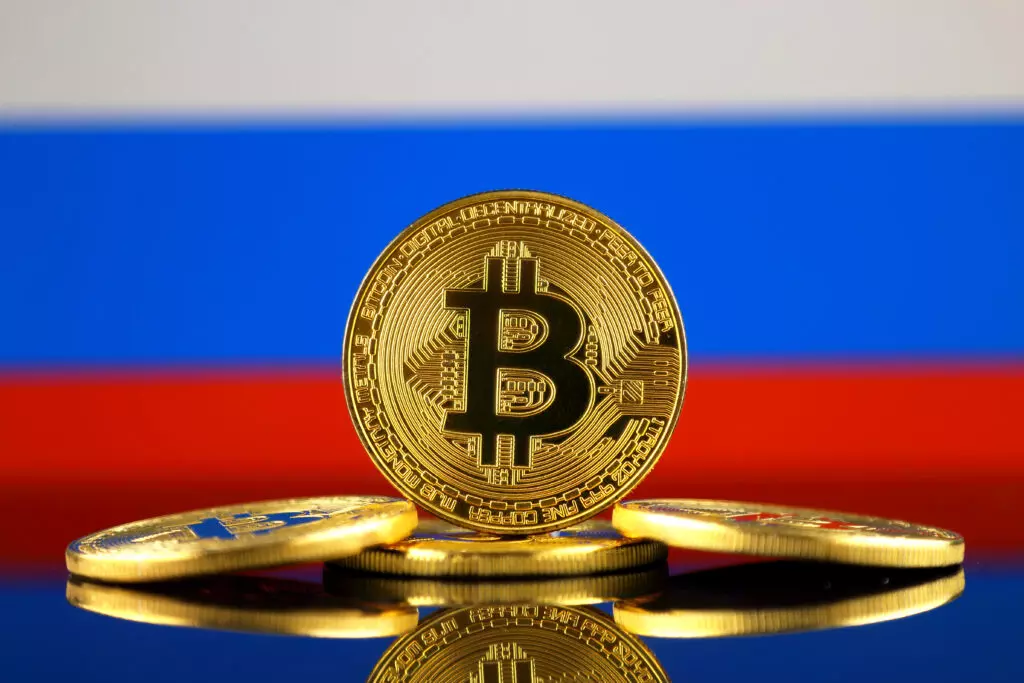Crypto In Russia

This blog post will cover:
- What’s going on with cryptocurrency in Russia now
- The statistics
- The history of cryptocurrency in Russia
- Conclusion
As crypto is getting more popular worldwide, Russia is no exception. However, it faces a lot of pressure on its way to crypto adoption. SimpleSwap will try to take a closer look at the crypto regulation in Russia and see what is going on with the cryptocurrency in this country.
What’s going on with cryptocurrency in Russia now
The Bank of Russia issued a consultation paper called “Cryptocurrencies: Trends, Risks, and Regulation”. According to this paper the amount of crypto transactions made by Russian citizens reaches $5 bn per year. The Bank of Russia expresses its concerns about some features of cryptocurrencies, such as:
- High volatility that may lead to significant losses for the investors
- Massive usage of cryptocurrency may limit monetary policy sovereignty of Russia, which may lead to some difficulties in dealing with inflation
- Mass withdrawal of savings from Russian financial sector may lead to difficulties with financing the real economy
- Cryptocurrencies are used for illegal actions, such as money laundering
However, cryptocurrencies are not the only subject mentioned in the paper. Stablecoins are also seen as a potential threat to the Russian economy.
So far the Bank of Russia proposes the following things that should be done in order to control cryptocurrencies in the country:
- Prohibit the use of crypto as a means of payment for goods and services
- Prohibit the issue and circulation of cryptocurrencies and establish a liability for organizations for breaching the ban
- Prohibit the financial institution of investing into cryptocurrencies and organizations related to the crypto industry
- Prohibit of the crypto mining in Russia
This story was continued when a Russian Finance Ministry official, Ivan Chebeskov, responded to the proposal of the Central Bank. He said that crypto should be regulated, not prohibited.
After the consultation paper was issued, there could be seen tension between the Bank of Russia and the Ministry of Finance. They could not reach an agreement on the future regulation of cryptocurrency. In February suddenly these two structures agreed on a bill to regulate cross-border cryptocurrency transactions.

The statistics
According to the Banklesstimes, website, providing the stats on the crypto use in Russia, we can see that 10.1%, which is 14.6 million of Russians own cryptocurrency nowadays. The most popular crypto is ETH, as 32% of citizens have chosen this coin. The second place is taken by Bitcoin with 30.8% people having it in their wallets. The majority of crypto owners in Russia are quite young — most of them are 18-34 years old.
Interesting fact: more women own cryptocurrencies in the Russian Federation. This statement, however, depends on the demographic situation, which shows that Russia has more women than men.
Looking for Bitcoin ATMs? Russia actually has some — at the moment there are 54 ATMs allowing to make transactions with BTC:
We have already touched upon ATMs in our Blog, figured out how they work and gave some instructions on how to use them. Now let’s move on to the background of crypto in Russia and find out what’s the future of the industry in this country.
The history of cryptocurrency in Russia
Russian relationships with cryptocurrencies are not easy. There were periods of love and hate, ban proposals and attempts to endorse. Let’s take a look at the most significant milestones.
- In 2017 Russian president Vladimir Putin briefly met with the founder of Ethereum, Vitalik Buterin, to discuss the opportunities of crypto and blockchain. Back then it seemed that Russia’s representatives, including the president, were all excited about the possibility to implement new technologies in the country’s life and to build a digital economy. However, even then they already mentioned that it must be regulated.
- Shortly after that meeting the Central Bank called Bitcoin a pyramid, and the president also emphasized several times that there is a chance that this crypto can be used for illegal purposes. That meant that for some reasons the government changed its mind, and the endorsement was no longer an option.
- The 2016 - 2018 period is considered to be a crypto boom time. At that moment there were a lot of initiatives that proposed various ways of using blockchain technologies and cryptocurrencies.
- In 2020 cryptocurrencies receive legal status, and it became illegal to use them as a payment method.
- In January 2021, an act prohibiting the use of digital assets for payments appeared, which complicates the use of crypto for sure.
There are few opinions about the crypto future in Russia. Interestingly, the Bank of Russia and Russia’s Ministry of Finance have opposed opinions on the subject. The head of the financial policy department, Ivan Chebeskov said that the Ministry of Finance believes that instead of banning cryptocurrencies Russia should think of ways to regulate it.
There is also no unanimity of view about crypto mining. Russia takes a big part in the world’s mining process. The Bank of Russia tends to ban this as well. In November 2021 the Duma, the lower house of representatives, suggested giving miners entrepreneurs’ status. This idea was not supported by the Central Bank.
However, the blockchain and crypto industry is not going to stop its development in the Russian Federation even considering the amount of obstacles it has faced. The most popular and largest bank of Russia called Sberbank, has announced the soon launch of the decentralized finance platform.
The official launch of the DeFi platform will happen before May 2023, as it’s stated in the announcement. Products director of the Sberbank Blockchain Lab, Konstantin Klimenko, says: “We have set ourselves a big goal - to make the Russian DeFi ecosystem number one. Our network now operates in the format of closed beta testing. From March 1 we’ll move to the next phase, it will no longer be beta testing, but open testing”.
According to Klimenko, the blockchain platform will be compatible with Ethereum(ETH). Clients of MetaMask wallets will be able to use the system. Konstantin also added that users would also be able to transfer their crypto from other platforms. He believes that the DeFi system in the future may displace the traditional market of banking services.
Conclusion
The situation with cryptocurrency in Russia is controversial. On the one hand, more and more people are investing their money into the crypto industry. Despite what the government thinks, Russian citizens have supported crypto for a long time. They do it for various reasons. One of them is an attempt to avoid inflation. On the other hand, there is the government that is trying to stop people from doing this in order to keep as much savings as possible in Russian currency.
The crypto ban may have various results. Undoubtedly, it will stop some people from participating in the Crypto World. Furthermore, it may also provoke the migration of developers and engineers to more crypto-friendly places. In any case, the final decision has not yet been made, so let's stay tuned.

